
Research continues to highlight the presence and severity of childhood disorders directly linked to an inadequate diet. The sad fact is that many children prefer processed food. These studies have also established the necessity of quality supplements to ensure a child’s nutritional intake to promote optimal health. With these views in place we must evaluate what supplements are highly beneficial and deemed safe for children.
Naturally Safe Ingredients
All ingredients should be naturally sourced in your supplement of choice, excluding additives, preservatives, gluten and artificial colorings. The artificial sweeteners found in many products are replaced with healthy sugar alternatives such as a natural substitute sweetener from the leaves of the Stevia plant and the natural flavors found in berries and fruit.
What is the Best Form of Supplements?
On the premise of natural verses synthetic, purchase supplements from whole foods containing combined nutrients of enzymes, antioxidants, vitamins, minerals and plant based chemicals. The advantage of a supplement supplying whole foods such as fruits, vegetables and grains are the addition of tens of thousands of phyto chemicals. The main noticeable difference of a natural product compared to a synthetic one is the potency level. Research supports the bioavailability of natural vitamins showing significantly lower potency in milligrams compared to high levels in synthetic supplements.
Why do Children Need Antioxidants
Antioxidants in addition to preventing and reducing oxidative stress are essential for proper detoxification. Many children have adverse effects to the thousands of chemicals used to increase a shelf life of a food or to change and enhance its flavor. These toxic chemicals accumulate in their young developing bodies resulting in lower mental performance, immune deficiency and behavioral issues. The best source of antioxidants is from supplements containing phyto chemicals, especially those found in berries. The presence of individual antioxidants such as vitamin A, C, D, E, beta-carotene and selenium will also enhance the nutritional value of a supplement.
Multi-Mineral and Vitamins
A high quality vitamin/mineral supplement is recommended for children over the age of four. A typical North American diet is high in refined, processed and sugary foods while low in essential nutrients; hence the need for supplementation which should not be regarded as a substitute for whole foods.
Iodine Deficiency
The importance of this trace mineral is nothing short of monumental. Iodine deficiency initiates a wide spectrum of problems locally and throughout the world ranging from mental retardation and other mental insufficiency disorders to various thyroid conditions and developmental problems. According to the World Health Organization (WHO), 740 million people are iodine deficient and reportedly of that number, 285 million are children. These disorders stem from inadequate iodine levels required by the thyroid on a daily basis in order for the thyroid to have the ability to manufacture thyroid hormone.
Unfortunately many of these problems develop before the baby has left the womb resulting from maternal iodine deficiency. The most devastating effect to the unborn child is the damage to its developing brain before and after birth. Rapid brain growth continues throughout infancy, therefore significant thyroid hormone depends on a constant iodine supply through supplementation or diet. The availability of dietary iodine for most cultures can be extremely difficult, pronouncing the need for supplementation.
Iodine supplements come in child friendly forms as well as in liquid, tablets, capsules, powder and sea vegetables (kelp, dulse, nori, wakame). By child friendly, it’s only about taste – not dosage. NOTE: a 7 month infant needs almost the same amount of iodine as as an adult!
*For more in depth information, visit the website of International Council for Control of Iodine Deficiency Disorders (ICCIDD) or the “WHO”.
Table 1 Lists the current RDAs for Iodine
For infants from birth to 12 months, the FNB established an AI for iodine that is equivalent to the mean intake of iodine in healthy, breastfed infants in the United States.
Table 1: Recommended Dietary Allowances (RDAs) for Iodine
Age Male Female Pregnancy Lactation
Birth to 6 months 110 mcg* 110 mcg*
7–12 months 130 mcg* 130 mcg*
1–3 years 90 mcg 90 mcg
4–8 years 90 mcg 90 mcg
9–13 years 120 mcg 120 mcg
14–18 years 150 mcg 150 mcg 220 mcg 290 mcg
19+ years 50 mcg 150 mcg 220 mcg 290 mcg
* Adequate Intake (AI) Factsheet download>>
Zinc
Zinc is an essential mineral involved in numerous aspects of our growth and metabolic functions. Zinc is required for normal growth and development during pregnancy, childhood and adolescence. Children with lower zinc levels have shown an increased susceptibility to infections ranging from pneumonia to the common cold. The area of risk appears to be after breast milk (4 – 6 months); for infants aged 7 to 12 months who need 3mg. daily. Supplemental zinc has improved the growth rate in children especially those demonstrating a mild to moderate problem.
Vitamin D
The American Academy of Pediatrics recommends that all infants get 200 IU of vitamin D through a supplement via the child’s formula daily during their first two months and continue to take this amount throughout childhood and adolescence to protect against bone deforming disorders.
Fish Oils
Research has shown the importance of omega 3 and omega 6 fatty acids (EFA’s) for brain function and development, visual function, concentration and behavior. Fish oil products tested by the International Fish Oil Standards organization follow much more stringent testing than many consumer labs, checking for the presence of unsafe levels of mercury, dioxins and PCB levels. Also to aid compliance, many companies produce child friendly supplements to exclude the fishy taste.
Fat Soluble Vitamins: Age Appropriate
According to Dr. Russell Greenfield, author of “Healthy Child Whole Child,” suggests that children between the ages of 4 – 12 should get no more than 50% of the adult RDA of the major vitamins and minerals, especially the fat soluble ones (A, D, E, and K) from supplements.
Calcium Citrate
When children are resistant to eating calcium rich foods, calcium citrate has been found to be the most absorbable. Bone and dolomite are not good sources for children since they contain lead or other toxins and calcium carbonate from oyster shells may be acceptable if the child has adequate stomach acid for absorption. Many professionals feel that supplementing calcium during our bone building years is the most optimal time.
Vitamin C
Perhaps the most widely taken supplement, vitamin C benefits children on many levels as do other nutrients although primarily in the area of growth and repair. It also helps in the body’s absorption of iron and reduces the effects of many allergy producing substances. Camu camu, rose hips and acerola cherries are the richest sources of vitamin C containing bioflavonoids. Be aware that a label showing Vitamin C from rose hips may contain 95% ascorbic acid and 5% rose hips.
Acidophilus and Bifidus
Probiotics are particularly beneficial during infancy and adolescence, aiding a bad diet, yeast infections, constipation, cradle cap, diarrhea, earaches and the use of antibiotics. There have been no side effects reported even when large doses were consumed.
Parents please remember that this form of biomass is 85% of our immune system and when you take or give an antibiotic to your children, you have just napalmed the most prevalent part of our immune system. For antibiotic replacement information download now>>
In an ideal world our nutrition would come solely through the food we eat. Living in today’s era of soil depletion, toxic environment, processed food, and storage problems, parents must look to other sources to compensate for the lack in their children’s diet. High quality supplements may be an essential component to protect a child’s health.
Copyright © 2017 – All Rights Reserved – Michelle Honda Ph.D.
Announcement
Look for my new forthcoming books “Reverse Heart Disease Naturally” (Jan.31, 2017) and “Reverse Inflammation Naturally” (May 31, 2017) “Reverse Thyroid Diseases Naturally” (2018) and “Reverse Alzheimers/Dementia Naturally” (2018).
Where to Purchase:
Reverse Gut Diseases Naturally
Reverse Heart Disease Naturally
Reverse Inflammation Naturally
Hatherleigh Press Page Buy Book RGDN
Local Book Stores in US and Canada
Disclaimer
While close attention was given to the accuracy of information in this article, the author accepts neither responsibility nor liability to any person with respect to injury, damage, loss or any circumstances involving alleged causes directly or indirectly related to the information in this article. The sole purpose is to educate and broaden ones awareness. This information is not meant to replace medical advice or services provided by a health care professional.





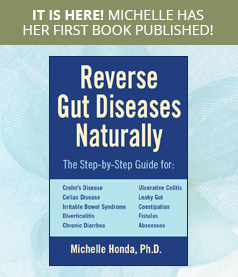

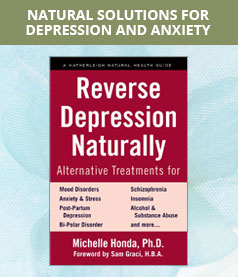
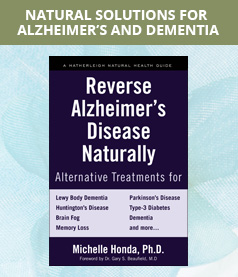
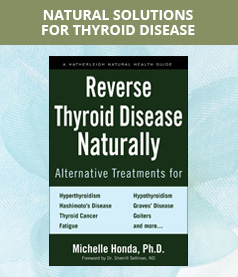

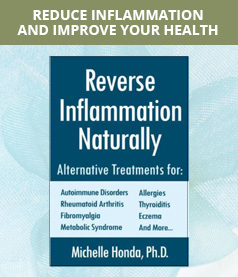
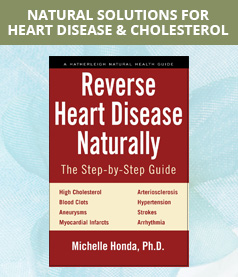
Follow Us!